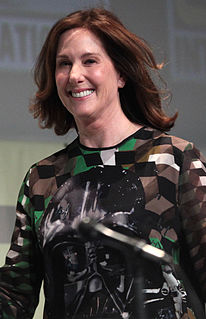A Quote by Sonia Sotomayor
When you have strong views about how to approach thinking about the law, then that view is going to lead to certain results in certain situations. And so people seem to think this predictability is based on some kind of partisan political view. But it's not.
Related Quotes
People talking about politics usually start from the ass end backwards in that they think you have a political agenda, and then you make your work fit that cookie cutter. It's the other way around. One works by simple observation, looking into things. It's usually called insight and out of that comes your view - not that you have the view first and then squash everything to make it fit. I'm not interested in cutting the feet off my characters or stretching them to make them fit my certain political view.
What hermeneutics teaches is that progress comes from being exposed to different points of views because there's no point of view that is right for all situations and all times. And even if it's superior to the others, you can enrich it by drawing on others or thinking: "Why is that wrong and how do I improve my approach? How do I come up with a better approach?" So that's essential for innovation just like it is in technology.
In my view, our approach to global warming exemplifies everything that is wrong with our approach to the environment. We are basing our decisions on speculation, not evidence. Proponents are pressing their views with more PR than scientific data. Indeed, we have allowed the whole issue to be politicized-red vs blue, Republican vs Democrat. This is in my view absurd. Data aren't political. Data are data. Politics leads you in the direction of a belief. Data, if you follow them, lead you to truth.
If you have laws and legislation that ban certain things based on the principles of the Scriptures and based on your Christian background, then let it stand there. Who is having big debates with the Islamic people about it (gay rights)? Who is telling them to bend their laws? If your laws are based on your Christian points of view, then you must stand your ground?
In terms of applicability to today's world, many people are trying to domesticate Scripture so as to get the PC answer, the politically correct answer on a wide range of subjects, whether it's homosexual marriage, or a certain view of government, or a certain view of eschatology or whatever. At the end of the day we want also to encourage the kind of reverent handling of Scripture that wants to be corrected by Scripture, that is more eager to be mastered by Scripture then to master it.
I just write and do what I think is funny. Sometimes, you do have it in your head about certain bits. There are certain jokes where I know if I did them in certain situations, it would irk people. There are times where I look at the news and see a story going on, and I'm like, 'Wow, if I tweeted this, I would get press if I wanted to.'
I want to say that Russia is developing along a democratic path, this is without question so. No one should have any doubts about that. The fact that, amidst political rivalry and some other domestic developments, we see things happen here that are typical of other countries, I do not see anything unusual in it. We have rallies, opposition rallies. And people here have the right to express their point of view. However, if people, while expressing their views, break the current legislation, the effective law in place, then of course, the law enforcement agencies try to restore order.
I feel connected with people because of their sense of humor, worldview, and what they think and feel about certain existential issues (things not affected, in my view, by if someone rides a horse or drives a car or talks only IRL or only by typing), not how old they are, what they use to convey what they think and feel about certain existential issues, or if we have both watched the same TV shows or looked at the same websites.
The New York Times and PBS are gatekeepers of a sort. And they perform that role of gatekeeping with a set of rules and aspirations about where they want to lead their viewers and their readers. They value objective facts, and they attempt to transmit a comprehensive view of the world. And they do have values. And they do lead their viewers and their readers to certain conclusions. But it's different than such monopolies as Apple or Google which are dissecting information into these bits and pieces, which they're then transmitting to people. And it's about clicks.
Spaces of liberation are, in a certain way, some kind of social spaces where people can not only get together and think about something else, but also act together. If you are thinking about an elemental solidarity, you are thinking about people acting together and taking decisions together, and thereby beginning to think about what sort of society they want to create. So, there is a need for liberated spaces; that is really difficult.
No one can stop or control your thought process or your thinking. You can think anything you want. But that doesn't seem to be the point. The thinking process has to be directed into a certain approach... not in accord with certain dogma, philosophy, or concepts. Instead, one has to know the thinker itself.


































